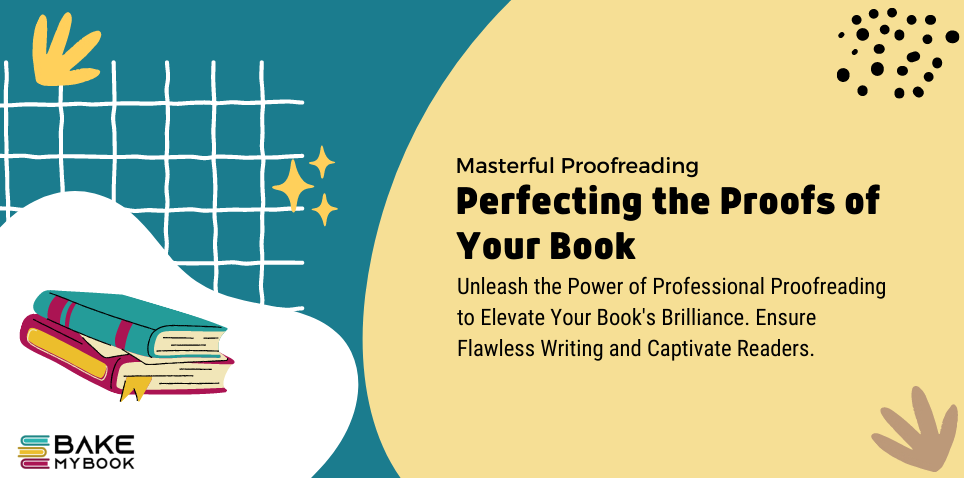A crucial phase of the book publishing process is proofreading. It makes sure your document is free of mistakes and gives readers a polished final product. Before your book is printed, as an author, it is imperative that you put time and effort into proofreading the copies. The significance of proofreading will be covered in this article, along with helpful advice on how to handle this crucial phase.
Checking your book’s proofs for spelling, grammar, punctuation, consistency, and formatting issues is the process of proofreading. It enables you to find and fix any errors or contradictions that might have gone unnoticed during the writing and editing processes. Proofreading involves more than just correcting typos; it also includes making sure that your book is polished, readable, and free of errors.
When you publish a book, you want it to show your professionalism and subject-matter knowledge. Readers want a high level of quality, and even a few mistakes might damage your author’s reputation. Frequent inaccuracies in a book can make reading less enjoyable and distracting, which could result in unfavorable reviews and a loss of reader confidence. Proofreading is therefore a crucial stage in producing a book that connects with your readers and stands out in the marketplace.
Here are some useful pointers to remember when you proofread the copies of your book:
Take a rest when writing and editing is finished before proofreading. This makes it easier for you to approach the subject from a different angle and enhances your capacity for error detection.
During the editing and proofreading process, read your novel aloud. By using this method, you can spot any problematic sentences, missing words, or grammatical mistakes that you might have overlooked when silently reading.
Use spell- and grammar-checking software to identify common mistakes. Be wary, though, as these tools are not perfect and may fail to catch some errors. Always conduct a critical examination of the recommendations made by these tools.
Paying close attention to detail is essential when proofreading. Look for grammatical flaws, improper word choices, punctuation faults, and inconsistent formatting. Make sure that all captions, headings, and subheadings are formatted correctly and consistently.
Keep your book consistent from beginning to end. Make sure that all of the names, dates, and information are correct and consistent. Verify that punctuation, abbreviations, and capitalization are all used consistently.
Asking a reliable friend, coworker, or expert proofreader to examine your book would be a good idea. Errors you may have missed can be found by new eyes. They can offer insightful criticism on your book’s overall readability and structure as well.
Watch out for typical errors that can easily go unnoticed during the proofreading process. Here are some examples:
Watch out for grammatical errors such as erroneous verb tenses, subject-verb agreement problems, misspelled terms, and more.
Verify that all commas, periods, quote marks, and other punctuation is present and not missing or misplaced. Make careful to employ punctuation consistently throughout your book.
The formatting of your book is consistent and follows the style guidelines you’ve established. Pay attention to font styles, sizes, line spacing, paragraph indentation, and other formatting elements.
Verify your writing for consistency in style, tone, and voice. Make sure that the style of your book is consistent and cohesive from beginning to end.
Look for mistakes and missing words, especially if you think your mind will fill in the blanks for you. Make sure each sentence accurately and completely expresses the intended idea.
Self-editing is important, but you should also think about using a professional proofreader. Professional proofreaders are skilled at finding and fixing problems because they have a sharp eye for detail. They may offer an objective assessment of your book, ensuring that it adheres to the highest requirements for quality.





